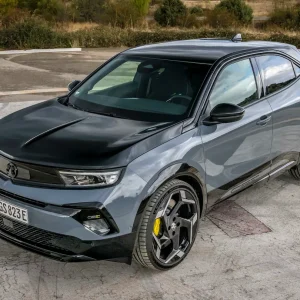Clean air zones (CAZs) are encouraging more sustainable travel in and around cities and help shape driver behaviour to use low- and zero-emission modes of transport.
Managing the disruption that these zones can cause to employee mobility should not come as a surprise to businesses.
However, the current lack of driver awareness could have an impact and increase costs, especially if the mobility and employee travel policy has not been reviewed in light of new flexible working patterns.
Many businesses with older, non-compliant vehicles did have a plan for trips into cities with these zones, such as London’s ULEZ.
Usually, this means not using the vehicle or renting a more modern one rather than paying the charge. Short- or long-term low-emission vehicle hire is a practical solution that is especially popular among businesses that own van or commercial vehicle fleets.
However, our research shows that too many drivers – including some van owners – are not planning ahead and many are not even aware of the likely impact.
Almost one in five UK van owners said they had no plan for how they would handle air quality zones, even though three-quarters think their journeys will be affected by them.
One in 12 workers said CAZs will impact business trips – and overall, more than nine million cars are potentially affected. One in five people also said their commute would be affected.
This means those employees who previously commuted by car into a city and then began a business trip in that private vehicle from their place of work would now need to rethink those journeys.
There is also a risk of additional surprise costs and charges as more air quality measures are introduced in cities across the country, compounded by a perfect storm of lower volumes of new vehicles coming to the market and the rising costs of used vehicles.
Businesses that allow employees to drive their own cars and recharge mileage may, in the short term, be more likely to see fines and additional charges creeping in.
An additional risk is that these costs can often be invisible if someone is not collating the data and seeing a sudden spike in CAZ costs being recharged.
This is especially true for businesses with more flexible working, where employees can choose where they work for part of or the whole week. What we are seeing is that employee mobility can quickly fall off the radar. Many of the travel solutions that were in place pre-pandemic may no longer be relevant.
Many people also invested in (or held onto) an older second-hand car during the pandemic and are using this as their transport of choice for commuting or business trips, with the result that the average age of most company’s employee car fleet is increasing.
Understanding employee travel requirements is more important than ever. As cities and local authorities introduce more measures to reduce emissions and improve air quality, companies need a clear understanding of the environmental footprint and journey profiles of their employee travel.
Only then they will be strongly placed to control cost, develop more informed travel policies, encourage positive behavioural change and deliver a more sustainable business.
Adrian Bewley is assistant vice president of business mobility for Europe at Enterprise Rent-A-Car





